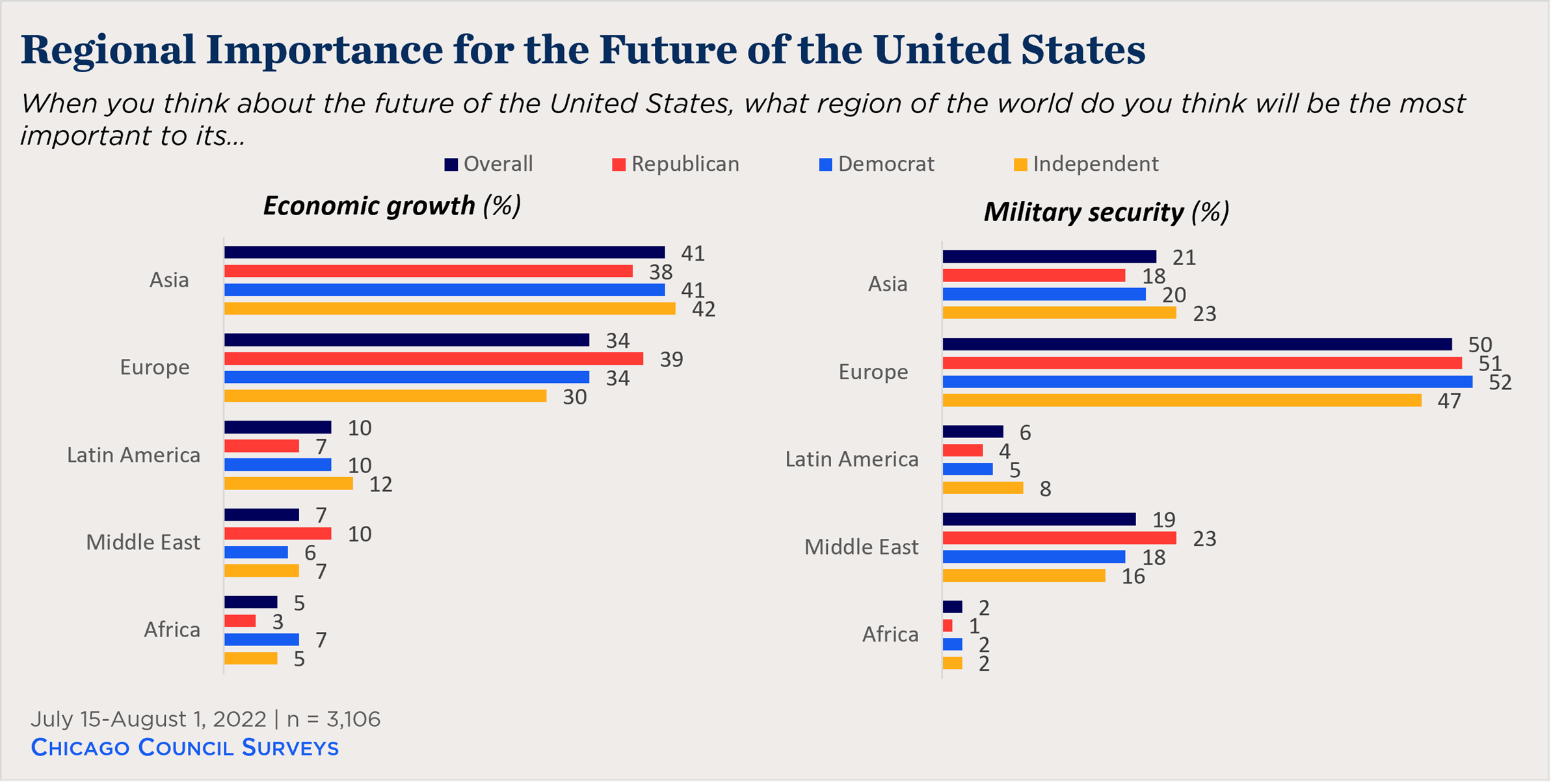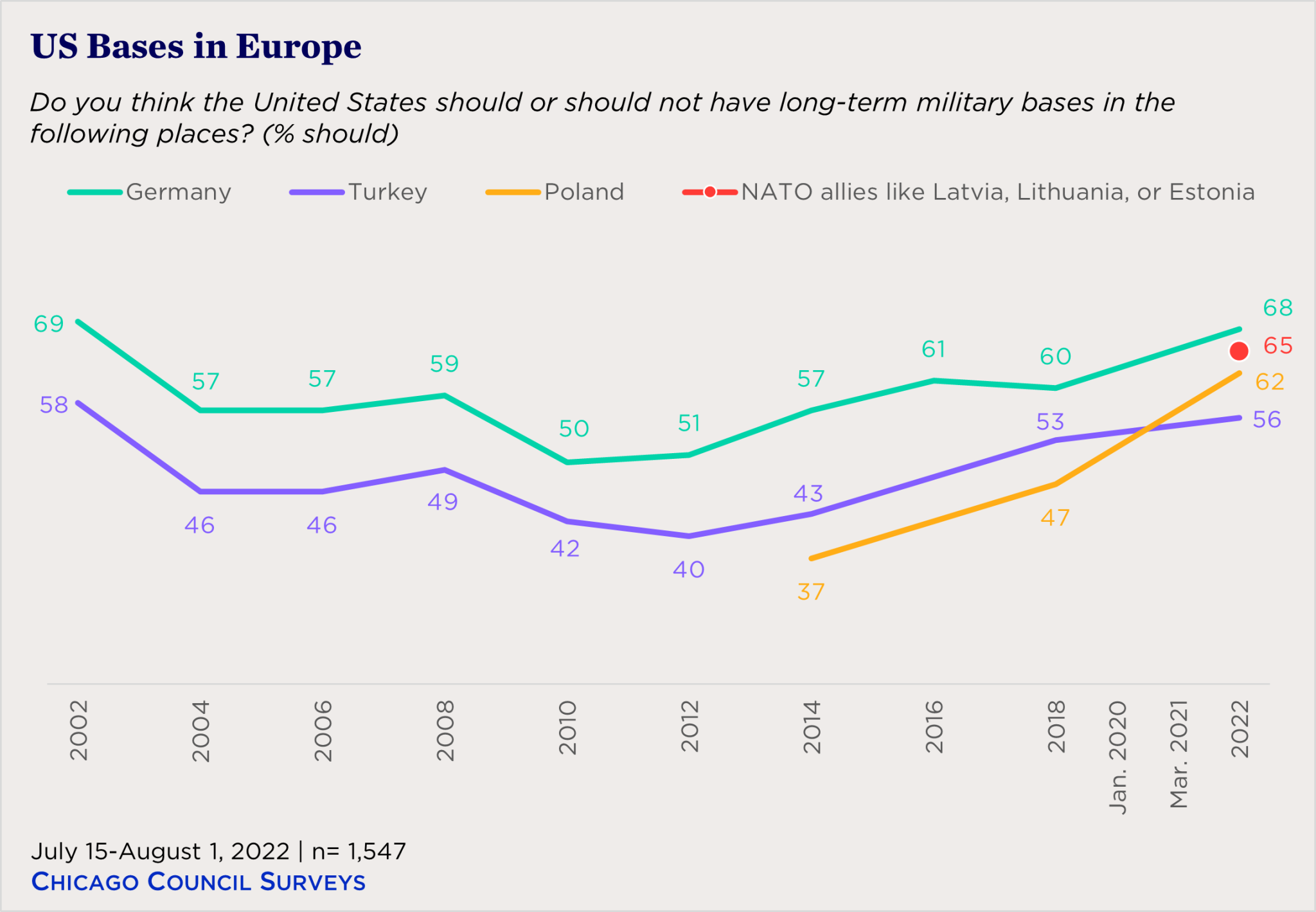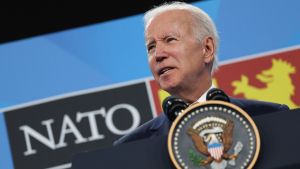Americans See Europe as Most Critical Region for US Security

Public support for US military bases on the continent is also on the rise, Council polling reveals.
Russia’s invasion of Ukraine has reoriented public attention to Europe, and Americans across the political spectrum support the continued presence of US military forces in the region.
Key Findings
- Americans consider Europe the most important region of the world for the military security of the United States (50%), far more than Asia (21%) the Middle East (19%).
- Majorities support having US military bases in Germany (68%), Poland (62%) and Turkey (56%). These levels of support are higher than in previous years.
- Asked for the first time in 2022, two-thirds also support long-term bases in NATO ally countries like Latvia, Lithuania, or Estonia (65%).
Americans consider Europe the most important region of the world to the security of the United States (50%)—a notable shift from past surveys when their focus was on the Middle East. In January 2020, just 15 percent of Americans saw Europe as the most important to US security interests, while 61 percent said that the Middle East was most important.

Many Americans (34%) also see Europe as the most critical region for American economic growth, though more name Asia (51%) as the most important region in economic terms.
Support for US bases in European countries has also risen since last asked in 2018. Majorities of Americans say the United States should have long-term military bases in Germany (68%, up from 60% in 2018), Turkey (56% up from 53%), and Poland (62%, up from 47%). Two-thirds also support long-term bases in NATO allies like Latvia, Lithuania, or Estonia (65%).



Methodology
This analysis is based on data from the 2022 Chicago Council Survey of the American public on foreign policy, a project of the Lester Crown Center on US Foreign Policy. The 2022 Chicago Council Survey was conducted July 15–August 1, 2022, by Ipsos using its large-scale nationwide online research panel, KnowledgePanel, in both English and Spanish among a weighted national sample of 3,106 adults 18 or older living in all 50 US states and the District of Columbia. The margin of sampling error for the full sample is +/- 1.8 percentage points. The margin of error is higher for partisan subgroups or for partial-sample items.
Partisan identification is based on how respondents answered a standard partisan self-identification question: “Generally speaking, do you think of yourself as a Republican, a Democrat, an Independent, or what?”
The 2022 Chicago Council Survey is made possible by the generous support of the Crown family and the Korea Foundation.

Related Content
 Public Opinion
Public Opinion
And bipartisan majorities of Americans support admitting new members to the alliance, Council polling shows.
 US Foreign Policy
US Foreign Policy
To deter Russia, America must help revive the region’s security architecture, Council President Ivo Daalder and James M. Goldgeier argue.
 Public Opinion
Public Opinion
“New polling data shows that the American public is much more likely to sense a natural alliance with European countries than the reverse,” writes Dina Smeltz in the Diplomat.
